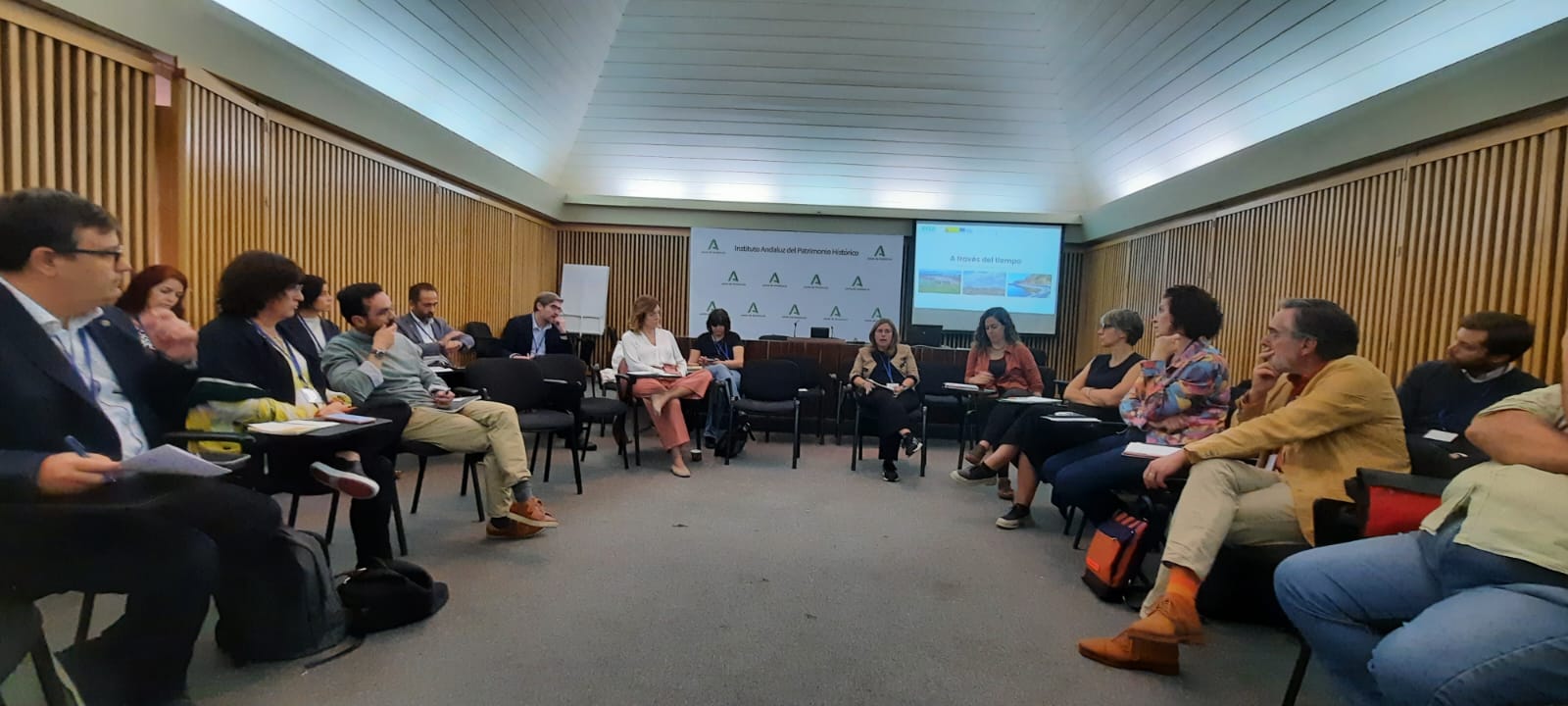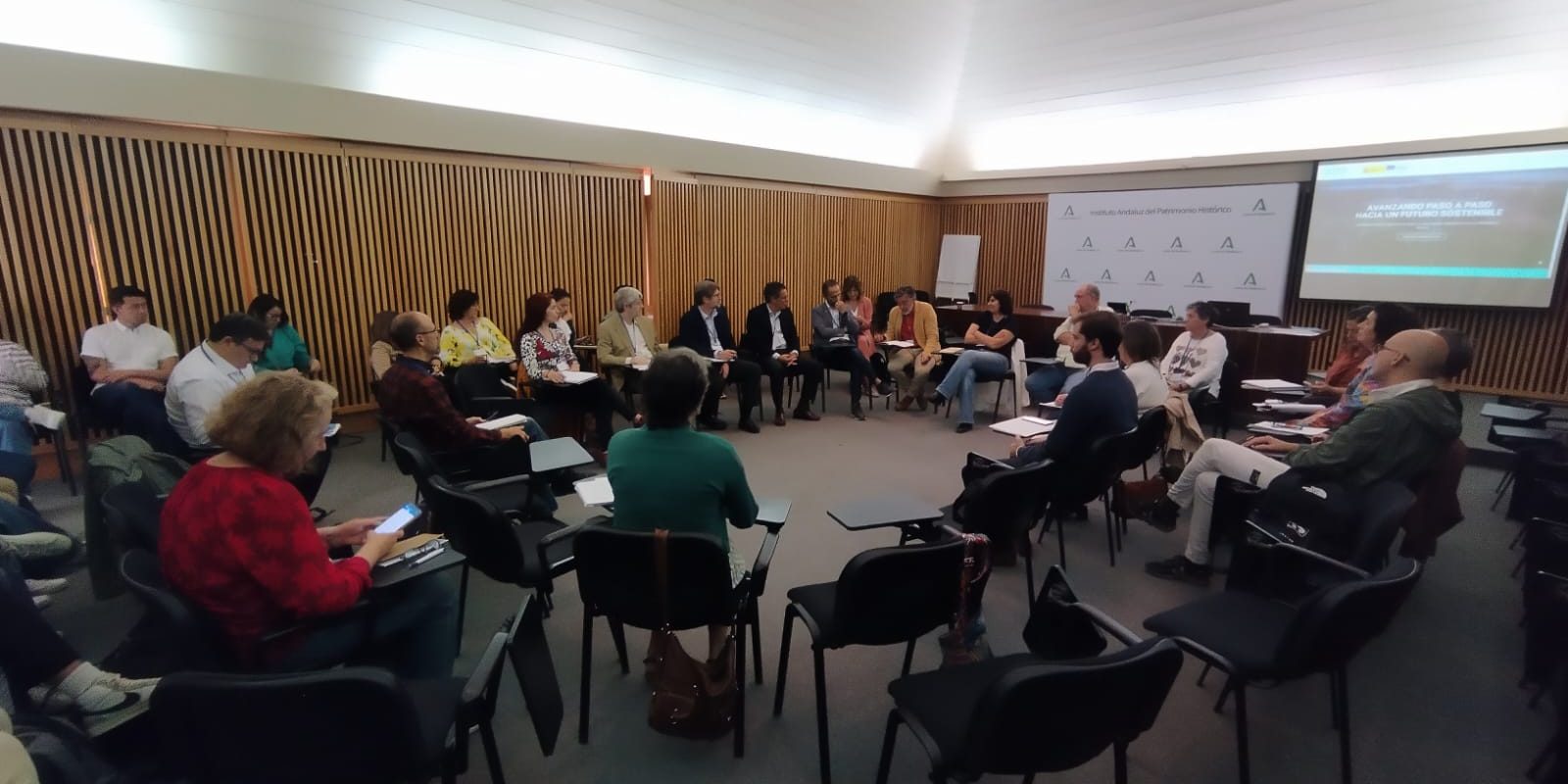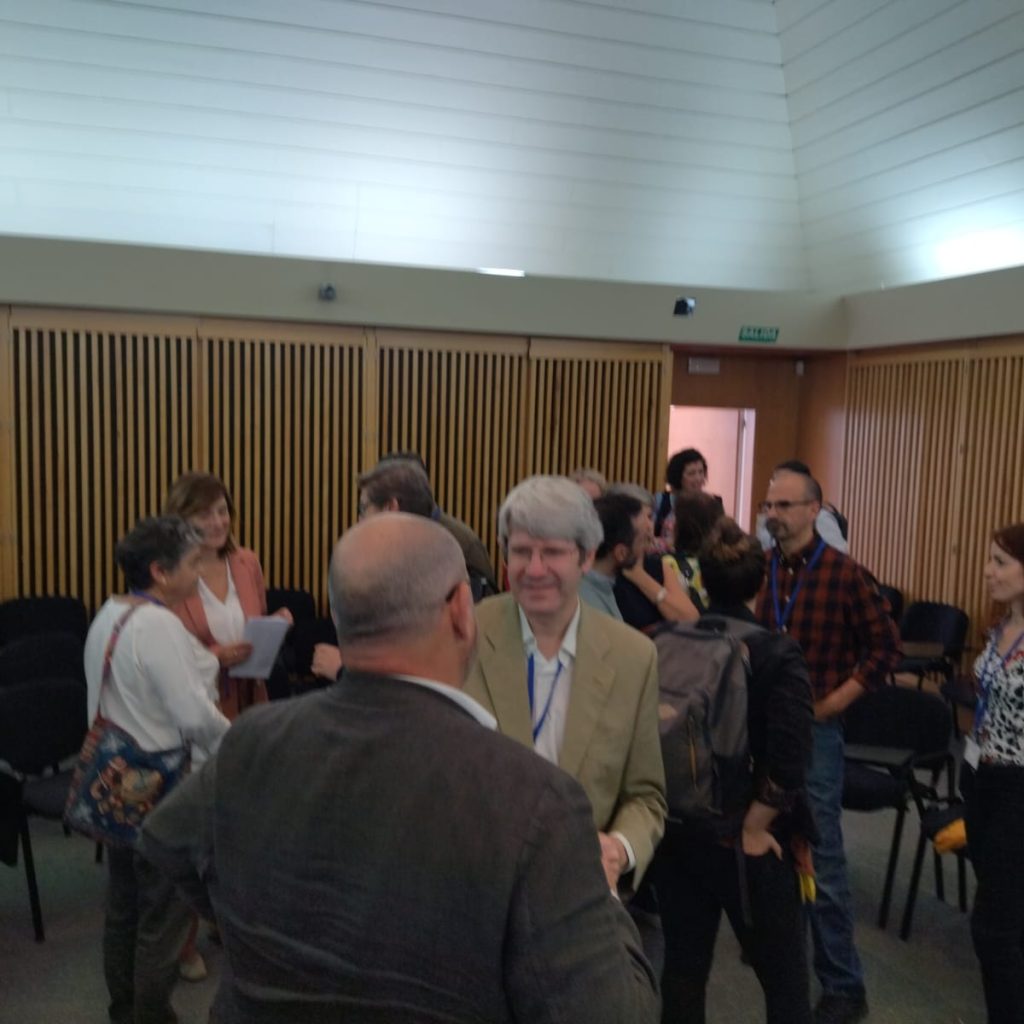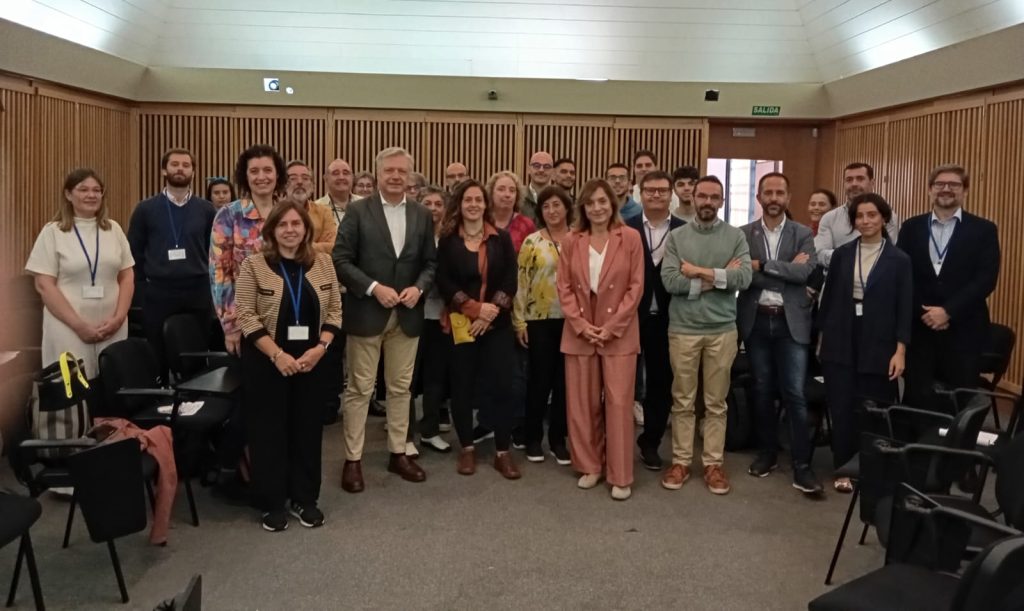The Seminar on Energy Transition in the Iberian Peninsula was celebrated on Tuesday, October 22, 2024, in the framework of the transfer of knowledge and results of the project, from the “road map” proposed in the last decade by the Council of the European Union, however, in this case we have referred to the particular cases of Spain and Portugal, understanding the Iberian Peninsula as a geographical space.
A common and open space was fostered for dialogue and exchange of ideas, experiences and expectations regarding the process of change and adaptation of energy production towards clean energy and renewable sources that we are witnessing as a society.
The main purpose of the seminar was: To review the role we play as central actors in the Energy Transition for the Iberian Peninsula.

We have encouraged dialogue around the following questions:
At what point are we in the Energy Transition?
What is social and territorial innovation in the Energy Transition?
What role do we play in the Energy Transition?
What are the challenges ahead to address the Energy Transition?


The seminar was attended by different actors from several organizations and institutions such as: Andalusian Energy Agency, Territorial Delegation of Economy, Finance, European Funds and Industry, Energy and Mines in Seville. Energy Service, Andalusian Association of Energy Communities – ANCE, Agricultural Association of Young Farmers – ASAJA, Association of Renewable Energies of Andalusia – CLANER, Association Towards Renewable Energies of the South – HERES, ENREDCOOP. – Escuela Andaluza de Economía Social, ENEL – ENDESA, COAGENER, Comunidad Energética Local Toda Sevilla, Comunidad Energética Jalea-Luz, Comunidad Energética Torreblanca Ilumina, Proyecto Coopérnico, students of the University of Seville.
As specific activities, two thematic tables were developed, moderated by members of the research team, with the following topics:
| Table 1- Discussions | A presentation was made about the preliminary results of the project with the explanation of the members of the research team for knowledge and discussion with the attendees. |
| Transfer of preliminary research results. | |
| Table 2 – Round Table on Energy Transition | A set of questions that challenge each invited actor from his/her sector administration/business/civil society/academia to reflect on the Energy Transition process, its main successes, challenges and limitations from his/her particular experience will be staged. |
| Reflection space and contributions from the public invited to the Seminar. |
The dialogue in the two activities exposed several relevant points on the transition issue and how, from each sector, some challenges and limitations have been solved.
To list, in a general and synthetic way, the following topics were discussed:
- Climate change with its severe environmental impacts and the need for emerging actions to mitigate its effects in the short and medium term.
- The approach of the European Union Council directives from policies focused on energy autonomy and efficiency, decarbonization, responsible consumption, promotion and financing of projects focused on renewable energies.
- The Energy Transition as an integral process that articulates energy sectors, transportation, mobility, construction and economic production to achieve real change in current models.
- The boom in energy production from non-renewable resources and clean energies based on zero waste production, the trend towards the installation of photovoltaic plants, wind farms and green hydrogen.
- Energy efficiency as a programmatic horizon that is transversalized in the regulatory framework, planning and implementation of public policies in the Iberian Peninsula.
- Fair Transition processes based on democratization, citizen participation and inclusion, both in the planning and execution of energy production projects.
- The implementation of projects based on the production of energy from renewable sources that are integrated into territories, landscapes and other forms of economic production such as agriculture.
- Energy Communities as a new paradigm for the application of social processes generated in conditions of community organization, energy production and consumption towards self-consumption or shared consumption, articulation to energy markets and management of expectations.
- The search for economic sustainability within the framework of new production models aligned to maintain a responsible interaction with environmental impacts.
- The need for training processes for the population in general for the consumption and production of energy according to these new models, in spaces such as energy communities, schools, colleges, and homes.
- The need for interaction spaces where all sectors involved in the Energy Transition process converge to promote dialogue, exchange of experiences and open the way to the formation of alliances and social cohesion towards the new energy models.


